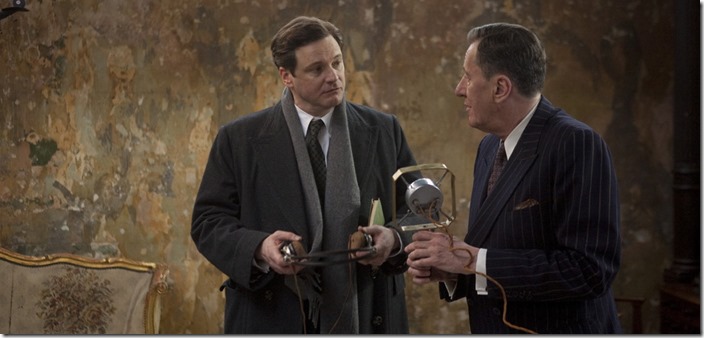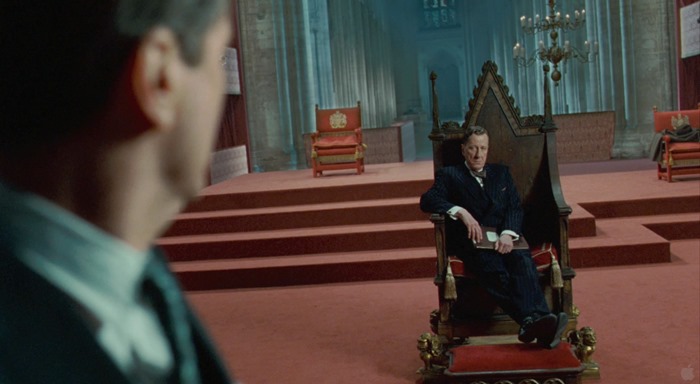A Leader or A Member, Lead the Way Only You Can
Team leader or core member, which role do you choose to play in a team?
The question showed up on the main screen in front of three hundred students. My eyes squinted; my forehead began to sweat under the heat of the blinding stage light. I was one of the panelists for a interactive session where students from the audience can come on stage, give their answers to the question and receive our advices. Three of us sat on a two-person leather couch; I was squeezed between the other two male panelists, whose smell of cologne - I hoped – was strong enough to overwhelm the smell of my perspiration. On my left was the general manager of a powerful IT firm; on my right was a young executive of a huge tobacco firm; I - in the middle – was apparently self-proclaimed writer, whose title of course wasn’t mentioned to the audience, for them, I was still in the mighty glory of descending from AIESEC global headquarter to earth.
A moment of silence passed and the panelists, I included, started to beckon: “C'mon! who dare to come on stage?”. Finally the first two students rushed towards the two “hot” seats beside us. They stated their opinions. Each time, the host asked one of us for our thoughts on the answer. The general manager on my left could make the whole audience laugh with his witty counter ideas. The young executive on my right responded each time with careful consideration. I, in the middle, tried to give my honest view and looked for certain patterns in their answers. After around 20 students I began to see two things bubbling up to the surface. Whether they wanted to be team leader depends on how much they like the tasks of having a vision and influence others to get there.
I ended my five years in AIESEC with a team member experience – member of the twenty-two-people global team, and member of the six-people sales team. It was the toughest, more than any team leader role I’d had before. Nevertheless, that experience was my greatest teacher. Before it, I also thought that “vision” and “influence” – the two beautiful words – belong to a leader’s job description. But for me now, that’s no longer true.
Being a member, it is tough to pick a team with vision that reflects a person’s true calling – a dream worth fighting for. It is tougher to realize what part of that vision will depend on him to come true, like a a piece in a vast jigsaw puzzle. It is toughest to hold that puzzle piece in his heart, and show up each day for the process with vigor and determination.
On my final coaching session at the end of the term, Rolf – president of AIESEC International, my leader – asked me about the reason for my perseverance in the task of creating new global partnerships in Asia Pacific – the market AIESEC International had struggled with for years. I thought for a moment and simply answered: “Because I had the conviction that it is something important to get done.” There, conviction – the firmly held belief in the team vision and your personal contribution, your piece of the puzzle. One student at the event mentioned above asked an interesting question: “What is the difference between love, like and passion for the work? Because now I think young people are very confused among them.” In my personal experience, despite many things I like to do in my job, and there are always plenty that I hate. But because the job is my passion – it allows me to share my gifts with the world, thus gives a sense of meaning and purpose to my life, I fall in love with my job. Love is not a feeling, love is a verb. Therefore I work joyfully, recklessly, despite like and dislike, ups and downs, failure and success, with a sense of peace at my back, with a conviction that what I do worthy.
What about influence? The girl on the hot seat said timidly: “I am not the energetic influential type. Therefore, I don’t think I fit the profile of a leader.” My heart sank. This distorted belief made me for years pretend to be something I was not. I am an introvert and I thought I needed to be loud and explosively charismatic to fit the bill. I had an ideal leader in my head and I mold myself to it. But it was wrong. There is no such thing as one-type-fit-all perfect leader. Nobody can live up to it. Nobody should live up to it, not at the cost of denying what they are made of. Leadership is an art. The leader is the artist. And like any other artists, he must learn to express his individuality with honesty and authenticity; he must find his own voice. “The only way to find your voice is to use it”, said Austin Kleon.
In The King’s Speech, a movie based on the true story of the impromptu ascension to the throne of King George VI – an unsure monarch with stammering disorder – and how his speech therapist – Lionel Logue - help him find his voice and self worth, there was an unforgettable scene when King George VI startled at Lionel Logue disrespectfully sitting on the coronation throne. He stammered:
-What are you doing? Get up! You can't sit there! GET UP!
- Why not? It's a chair.
- No, that. It is not a chair. T-that... that is Saint Edward's chair.
- People have carved their names on it.
- That... chair... is the seat on which every king and queen has... That is the Stone of Scone you ah-are trivializing everything. You trivialize...
- It's held in place by a large rock. I don't care about how many royal arseholes have sat in this chair.
- Listen to me. *Listen to me!*
- Listen to you? By what right?
- By divine right if you must, I am your king.
- No you're not, you told me so yourself. You didn't want it. Why should I waste my time listening?
- Because I have a right to be heard. I have a voice!
(pause)
- Yes, you do. You have such perseverance Bertie, you're the bravest man I know.
You too have a voice, and all voices, whether of a leader or a member, and no matter how loud or quiet or badly stammered, deserved to be heard. Neil Gaiman famously said: “the one thing that you have that nobody else has is you. Your voice, your mind, your story, your vision. So write and draw and build and play and dance and live as only you can.” Trust yourself, trust your voice, lead and influence and inspire as only you can. Making positive influence and inspire others is not just a leader’s job. It’s every person’s duty to hold on to each other and remind each other every day what they are truly fighting for.
Another I learnt is the power of the unspoken – of quiet role-modeling in emanating influences. Your voice can of course be heard through microphones and loud speakers, but never forget “actions are louder than words.” Role-modeling is the ultimate way for any one to create positive influence. To influence is to change. A person cannot be changed without his personal will to change himself. Change is the door a person must walk through himself. We can give him advice if he ask, but we cannot put him on a wheel chair and push him through that door. What we can do is to be a role model at the other side of the door, to the best of our ability, with conviction. That’s how we can grant ourselves the best shot at helping him walk through that door, without appearing judgmental, without making him feel inadequate or inferior.
Role-modeling boils down to the art of personal leadership, leading the self before leading others – to achieve “private victory” before “public victory”, as in the “7 Habits” theory of Dr. Steven R. Covey. When the host of the event asked me “what are the roles of a team leader?” I said there were only two “First, knowing the team’s mission; second, manage all the team resources to accomplish it” . The same goes with personal leadership “First, knowing your own mission; second, manage all your resources to accomplish it”. The latter is difficult.
I have seen many dreamers who have wonderful ambitions but never do something about it. The true test lies in the dirty work of daily diligence behind the scene where no one’s watching. The true test lies in understanding our own behaviors, habits, impulses, and to reprogram ourselves, not out of shame, but out of self-compassion, and a conviction that we can become more. Like when a writer sits down at her writing desk 8 A.M each morning, not only with the ambition to become the great novelist, but also with a headache and a doubt that she will ever create something beautiful again, but she manages to cut through and scribbles down sentences after sentences, something inside her head telling her this is the worst junk in the world, but she doesn’t care, anyhow she continues because writing is her passion and she choose to love; the next day she will show up again, 8 A.M, pen in her hand.
"Some are born great, some achieve greatness, and some have greatness thrust upon them." - William Shakespeare was quoted in start of the King’s Speech. There are situations when we are demanded to step up – like King George VI to the throne with his stammering voice - and situations when we are compelled to step down. I think we will truly learn about leadership the moment when the position and the title don’t matter any more, what matters is to be in the arena and fight the good fight with all our heart.
At some point during the session I began to feel both hopeless and useless. Because I knew it didn’t matter how long I talked. These three hundreds students would not understand it until they actually tasted it. We learn about leading others and leading ourselves through leading. The best teachers on the subject of leading others are our members; the best teachers on the subject of personal leadership are ourselves. So, go there, plunge into the unknown, lead others, and lead your life, the way only you can.





